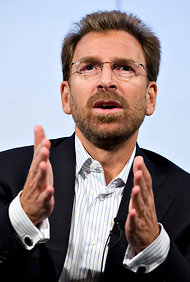Four years after his death, Michael Jackson still rules the music business.
Jackson’s importance to music and his continuing earning potential have been on display in a courtroom in Los Angeles this summer as members of his family battle with the promoter of his final concerts over who was responsible for his death, a question that may be worth more than $1 billion.
The darker part of Jackson’s legacy is also on display: the drug dependence, financial fecklessness, accusations of sexual abuse and the inescapability of his family, which first propelled him to stardom as a child and now continues to live off his fortune.
To judge by the market, that history is largely forgiven, if not forgotten. Forbes estimated that the estate made $145 million last year through a range of music and merchandising deals; the only living musician to come close, according to the magazine, was Dr. Dre with $110 million, mostly from the sale of his company Beats Electronics.
Cirque du Soleil’s tribute, “Michael Jackson The Immortal World Tour,” has sold more than $300 million in tickets since it opened two years ago, and last month an elaborate new Cirque show, “Michael Jackson One,” opened in Las Vegas.
Projects like these keep money pouring into the estate even as Jackson’s album sales have slowed from a peak after his death. Since 2009, the estate is estimated to have earned at least $600 million.
“Time is an elixir,” said Stephen G. Hill, the president of music programming and specials at BET Networks. “We’ve already seen in four years that what is really celebrated about him is his music, and his place among the greatest entertainers of all time.”
The wrongful death suit against the concert promoter A.E.G. Live, brought by Jackson’s 83-year-old mother, Katherine, hinges on the narrow question of whether Jackson or the company was responsible for hiring Dr. Conrad Murray, who administered the anesthetic that killed Jackson in June 2009. Dr. Murray is serving a four-year prison sentence for involuntary manslaughter.
Mrs. Jackson, who with Jackson’s three young children is suing A.E.G. Live, gave emotional if sometimes confused testimony last week, as her lawyers’ last witness before the defense began making its case.
“They watched him waste away,” Mrs. Jackson cried from the stand, encapsulating her lawyers’ argument that A.E.G. Live ignored Jackson’s health and pressured Dr. Murray to do whatever it took to get him on stage.
But the trial, now entering its 14th week, also shows Jackson’s exceptional role in the music industry. As with everything he did, his comeback was planned on a huge and risky scale.
Even though Jackson had not toured widely in more than decade, some $30 million was spent to mount 50 shows in London, with rough plans for a world tour to follow. Hours before his death, the show’s insurers were still seeking details about Jackson’s health, prompted by news reports that he suffered from a variety of illnesses including lupus, cancer and anorexia, according to an e-mail shown in court.
Lawyers at the trial have delved, often in numbing detail, into the minutiae of the music business to try to assess Jackson’s earning potential. Last week, nearly an hour of combative questioning was devoted to the seating capacity of the Rose Bowl in Pasadena, Calif.
A major question, beyond the culpability of A.E.G. Live in Jackson’s death, is how much money the entertainer might have made had he lived. That amount has been hotly disputed in court. Arthur Erk, an accountant called by the Jacksons, gave a future earnings estimate of $1.5 billion, but his analysis and methodology — Mr. Erk said that much of his information came from the Web site Wikipedia — were attacked by lawyers for A.E.G. Live.
Like plenty of other artists, Jackson turned to touring by necessity, said Stan Soocher, an associate professor at the University of Colorado, Denver, and the editor of the journal Entertainment Law and Finance.

Article source: http://www.nytimes.com/2013/07/29/business/media/jacksons-earning-potential-is-at-the-heart-of-a-wrongful-death-suit.html?partner=rss&emc=rss
